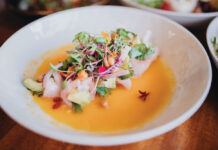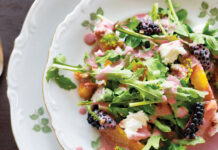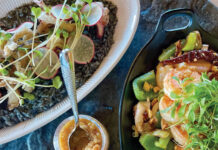By Becky Speere
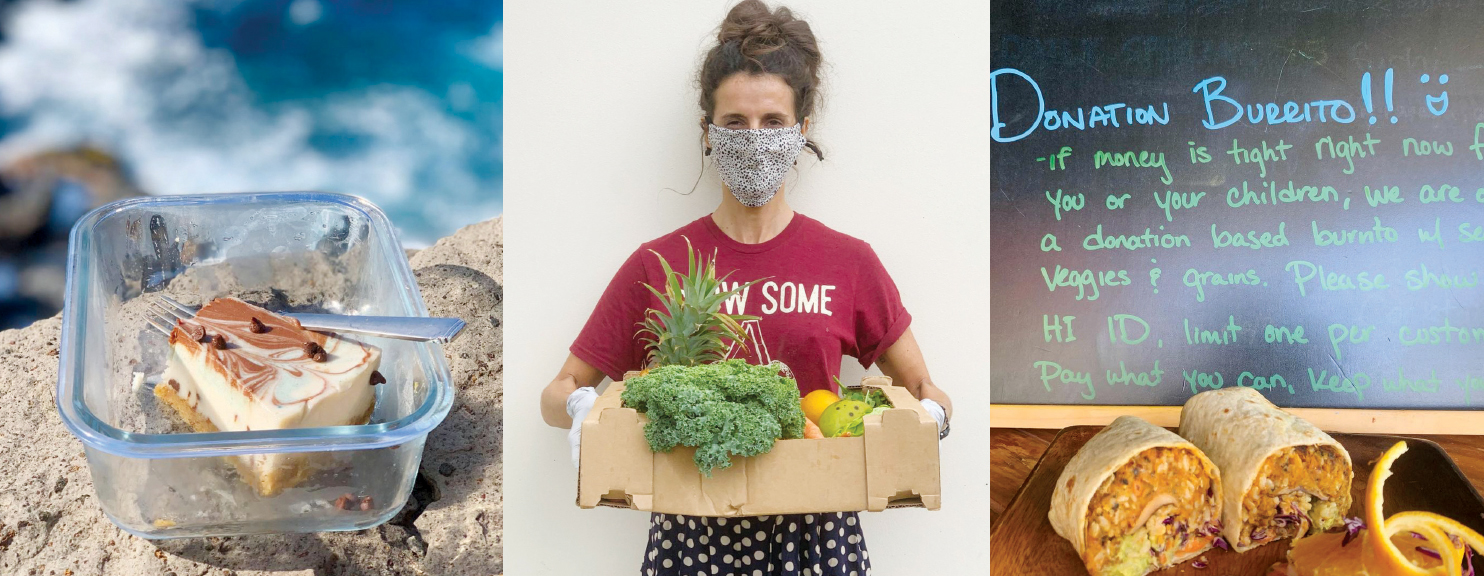
“It was the best of times, it was the worst of times, it was the age of wisdom, it was the age of foolishness, it was the epoch of belief, it was the epoch of incredulity, it was the season of light, it was the season of darkness, it was the spring of hope, it was the winter of despair, we had everything before us, we had nothing before us.”
Never has this quote from A Tale of Two Cities by Charles Dickens been more apt. Pre-pandemic, Maui was thriving, bustling, busy, bright. And then … it wasn’t. Like many places around the world, the economy here relies on tourism to survive. Restaurants were among the businesses that were hardest hit, and many were forced to close their doors forever. For those that remained, “reinventing” and “pivoting” became overnight buzzwords, and restaurant staff changed tack on a weekly basis to align with the ever-evolving edicts of the CDC and Hawai‘i’s governing bodies.
The thing is, even in good times, the profit margin of a restaurant hovers between 20 and 30 percent, so with the loss of patrons, payroll concerns and lease and utility bills, how could they survive? How did they survive?
We spoke with the chefs, owners and managers of some of our favorite establishments. Their answers varied a little, but what we heard about most from them all was innovation, ‘ohana (family) and community. Here’s how these remarkable restaurants stayed afloat and vowed to hele on (keep moving) during these, the literal worst of times.
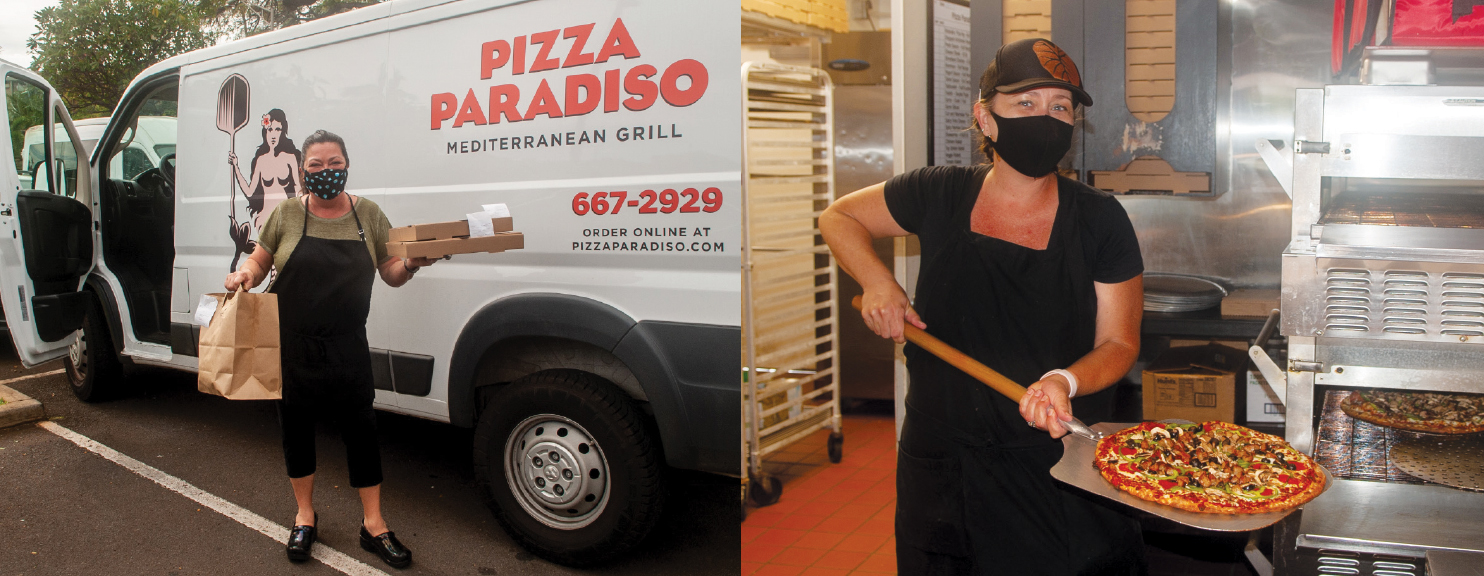
TO CLOSE OR NOT TO CLOSE, THAT WAS THE QUESTION
Michael Loudermilk Down the Hatch never closed, even when Lahaina became a ghost town. We stood strong together with the community and gave our guests a sense of normalcy when many were struggling. We did our best to do the right thing and keep our staff working.
Rob Farrell Ultimately, [Mala] was forced to close, but once we did reopen for dine-in on June 1, 2020, our team really came together in aloha. No one knew how things would go and we were always adjusting and trying to do our absolute best. We adapted the menu, offered curbside service, remained ocean-friendly and chose to not turn to nonreusable products.
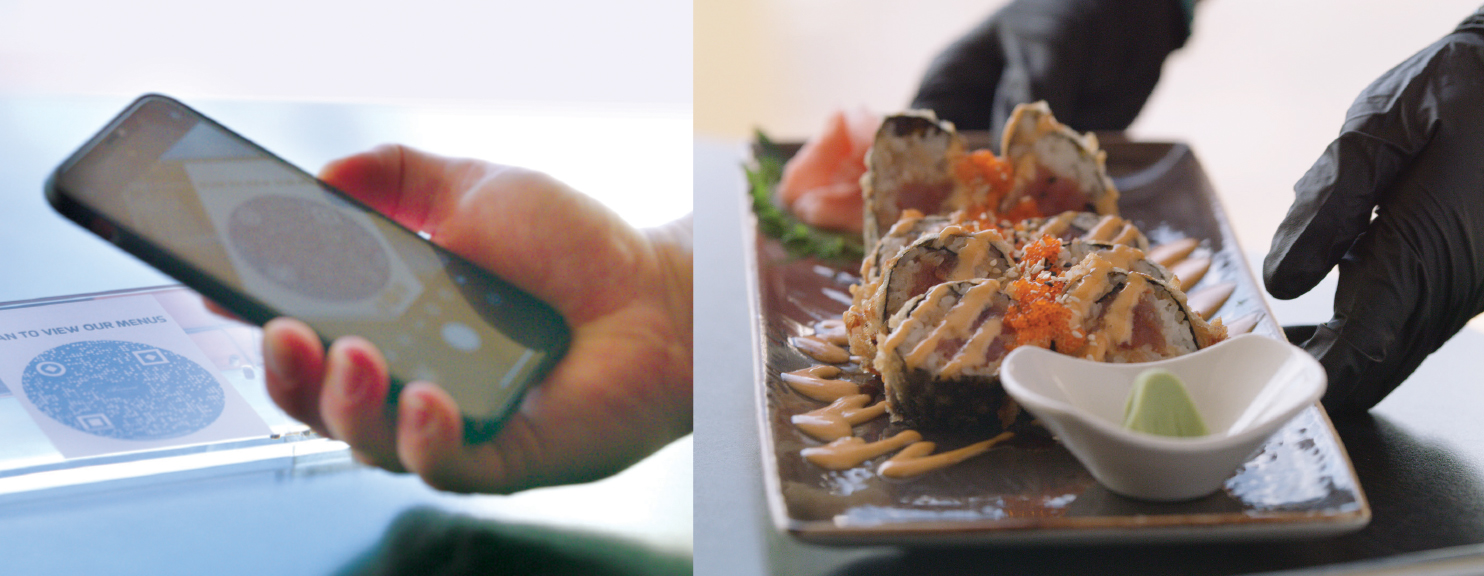
Tylun Pang We were given ownership by [the Fairmont Kea Lani] to provide our teams with the necessary resources and manpower we needed to stay open. Our company’s Allsafe and Ecosure programs provided alignment with local and state mandates. At Fairmont Kea Lani, we are ‘ohana and many of us have worked together for decades. Welcoming, safeguarding and taking care of others is at the very heart of what we do.
Alexa Caskey There was one week we thought we might have to close based on sales, but fortunately we didn’t. Because of our unique food, counter service and smaller-size restaurant, we were able to operate at a reduced scale more easily than other places could. We consolidated our hours and started selling and delivering fresh produce boxes with items from local farms, and offered Donation Burritos, which people could pay for or not, depending on their financial situation.
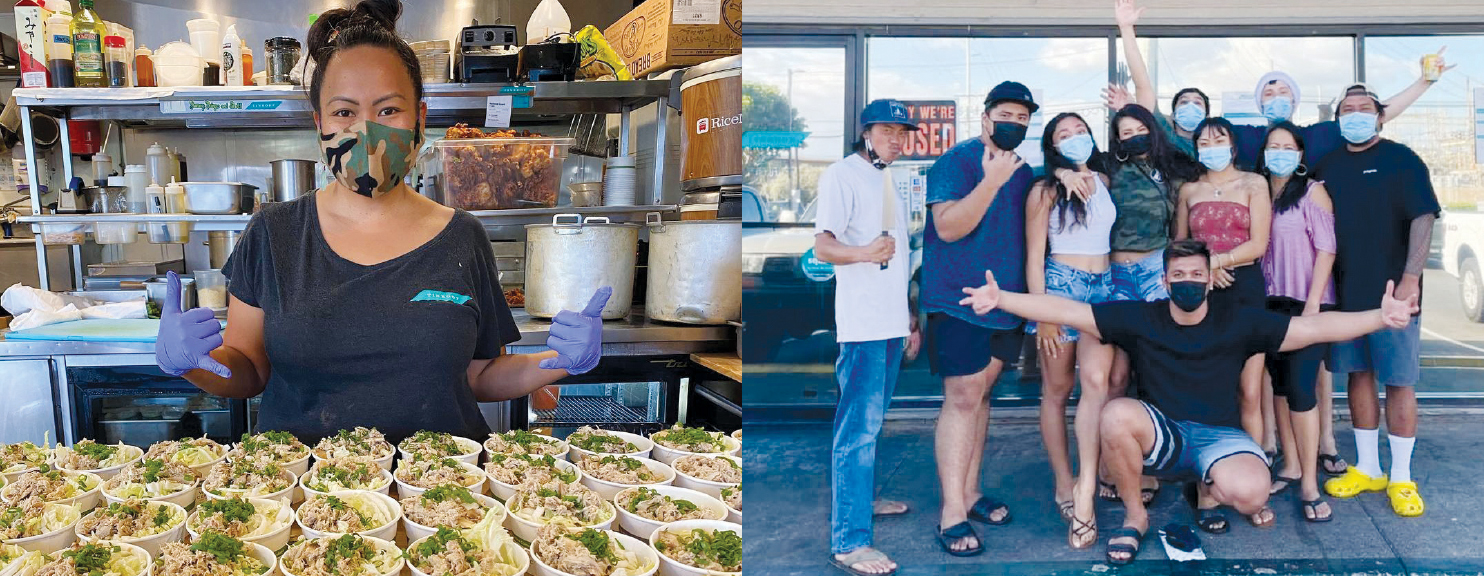
Janice Simeon Initially, there was some hesitation about staying open because we felt like we might be encouraging people to go out rather than stay home, as was instructed. But we were also concerned about how we’d pay our bills and keep our families fed if we were to close. And — we didn’t know how long [the restrictions] would last.
SAFETY FIRST
Keith “Pono” Apana Even before the pandemic we had heightened our safety protocols because my wife and mother are at a higher risk for the flu. We wore masks in the kitchen, increased cleaning protocols and created special steps to handle money. When we reopened for no-contact service, we created sanitation stations and cleaning procedures for the delivery vehicles and carts, and devised a way to use the parking lot outside Heritage Hall in Pā‘ia as a drive-in: We numbered the parking spaces and socially distanced the vehicles. For a dim sum drive-in date, couples could receive the delivery in their vehicle and eat in the back seat.
Tanya Kaina Doyle We were the first to wear masks in our food truck, and while some laughed they all eventually followed.
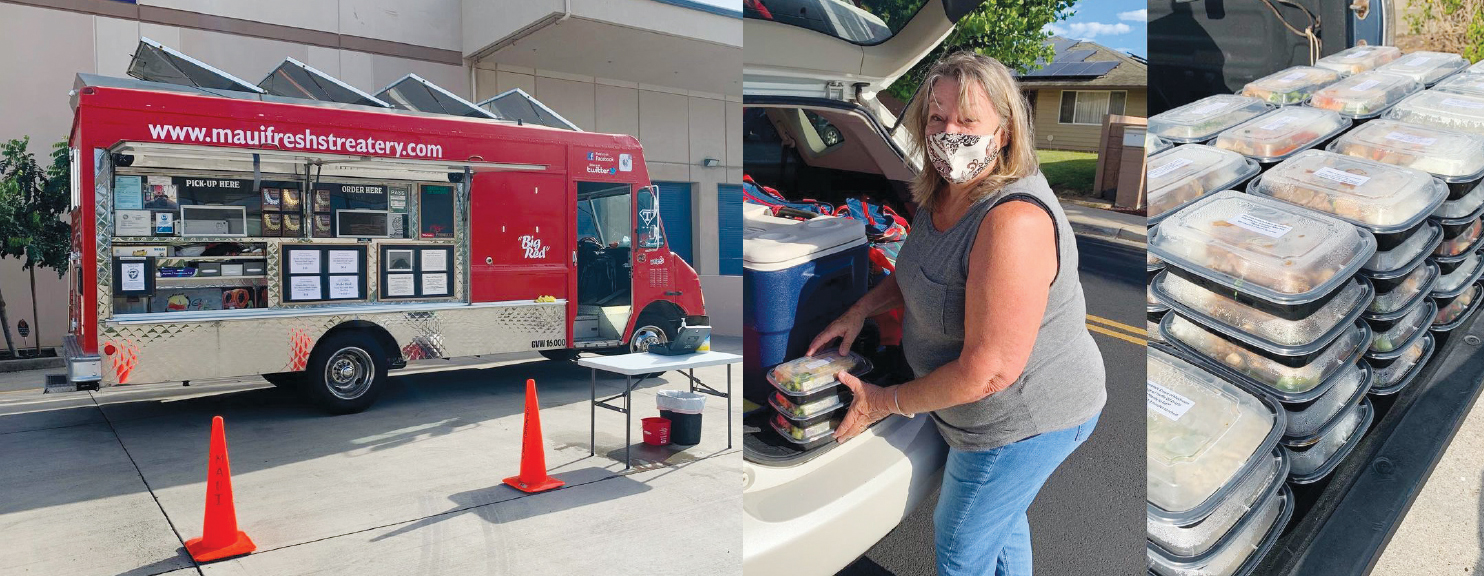
Kyle Kawakami In March we initiated our two-pronged Zero-Contact Service Protocol. First, we [offered] cooked, packaged and chilled [to-go] meals. Second, we changed our service procedures: customers remained masked and in their cars and pulled up to the truck drive-thru style. Their order was placed in a bag on a table and then the staff stepped away so the customer could exit the car and gather their food.
HONORING ‘OHANA
Kyle Kawakami We recognized the impact the pandemic was having on the kūpuna (elderly), so we started the Kokua Meals Initiative, which utilized customer donations to cook meals for at-risk and socially isolated seniors. Over the course of 10 months, volunteers distributed nearly 5,000 meals.
Paris Nabavi We started delivering and offered a kama‘aina (local resident) discount. My wife and I worked seven days a week. We kept our employees on who were ineligible for unemployment, and used that down time to deep clean and do various projects.
Tanya Kaina Doyle I reached out to the teens in our neighborhood who were out of school. They were cooped up in their homes, eating constantly and running up electric bills by playing video games all day long. I started by having a few of them volunteer at the truck, and they expressed the desire to work and make money instead of being stuck at home. That inspired me to start a pilot program teaching work/life skills, and I gathered five teens willing to be part of the team. I also assembled a group of parents to help flesh out the program. These teens had no work ethic, no sense of organization, no food-safety skills and no cash-handling experience. Hui Malama Learning Center, an educational and academic nonprofit, caught wind of our program and sponsored us with funding. The teens were able to make 4,000-plus meals for our kūpuna and Upcountry ‘ohana inneed. They continue to learn every aspect of operating a food truck, and some are even launching their own businesses and are being trained as supervisors. We will forever be there for our keiki (children) to guide them as best as we can.
Janice Simeon Many working locals came by to say how much they appreciated us staying open. It was nice to be able to slow down and chat with our customers, since we were operating at a much slower pace.
Keith “Pono” Apana Many kūpuna and the immunocompromised thanked us for doing so much to maintain a safe environment. Some of our customers won’t eat out anywhere else.
ISLAND INNOVATION
Rob Farrell We implemented the Chef Takeovers, [a visiting chef series] where professionals from all over Maui came to guest-cook. We had Zach Sato, Jeff Scheer, Regi, MiJin Kang Toride and many others. It inspired residents to come and support their favorite chef. The series also brought us chef Alvin Savella, aka “The Kitchen Assassin,” and we are so excited to have him [at Mala].
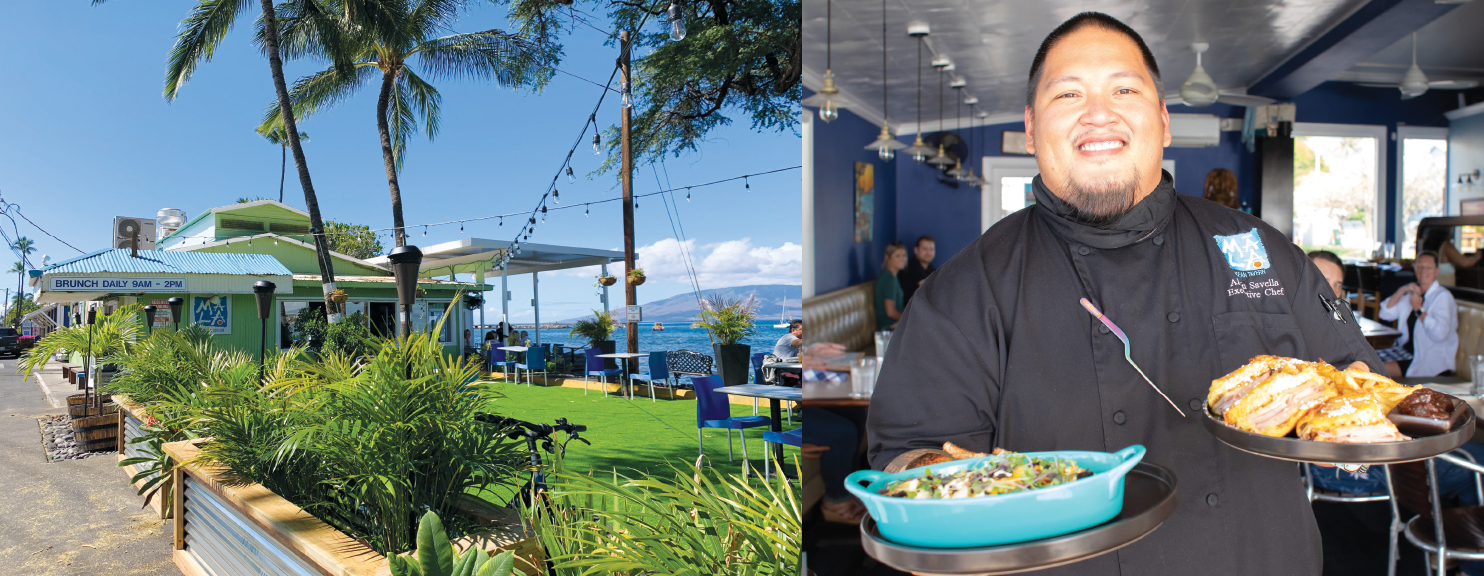
Kyle Kawakami The thing that most impacted our success was being able to identify the concerns of our customers. These were frightening times and we acknowledged that people were afraid to eat out. By accepting and understanding fear, you are able to make thoughtful and sound business decisions.
Janice Simeon
In order to bring our staff back we had to meet a certain sales revenue each day, so we extended [our daily] service from four to 10 hours and split the team. Each person was tasked to do the job of two, and as business started to increase, we were able to hire more people.
Tylun Pang
Sourcing ingredients was a surprise challenge, but we approached it with an open mind, stayed focused on the end goal of serving great food to our guests, and adjusted our recipes and menus.
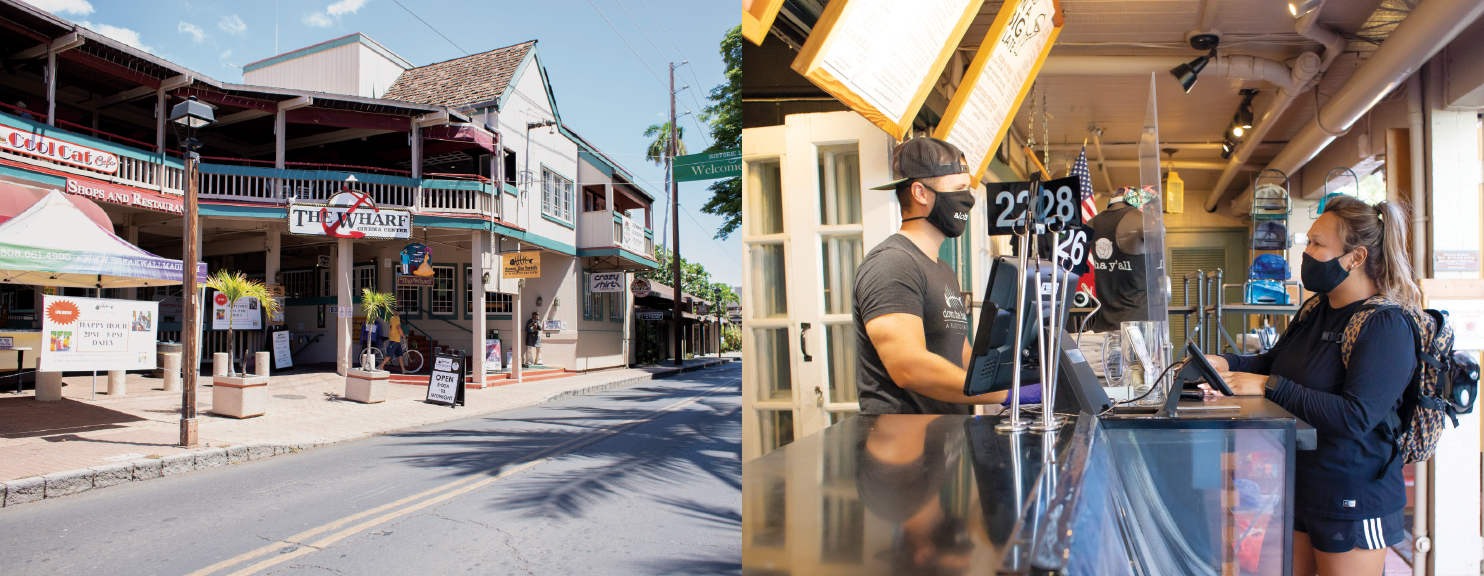
LOOKING FORWARD
Tylun Pang I [was] truly inspired by our community outreach to our greater ‘ohana to care for our Island. Many of the resorts, restaurants and agriculture partners responded [quickly] to those in need. There are so many heroes out there and I have never felt luckier to live on Maui!
Michael Loudermilk It was a lot of trial and error, but we were able to adapt at every turn. Now we’re on our toes waiting for the next thing that might pop up.
Tanya Kaina Doyle Success is not what’s in my pocket, it’s the service I have provided for our community. I created jobs that help support families. I have smart teens who have learned perseverance, responsibility, integrity and drive. They work hard every day and the sweat, blood and tears are worth it, especially when it’s for the ones you love. The pandemic has been nothing but success for my ‘ohana and we made sure fear was never a factor. Safety precautions and respect for others were always on our mind, but we knew for damn sure that a virus would not keep us apart.


